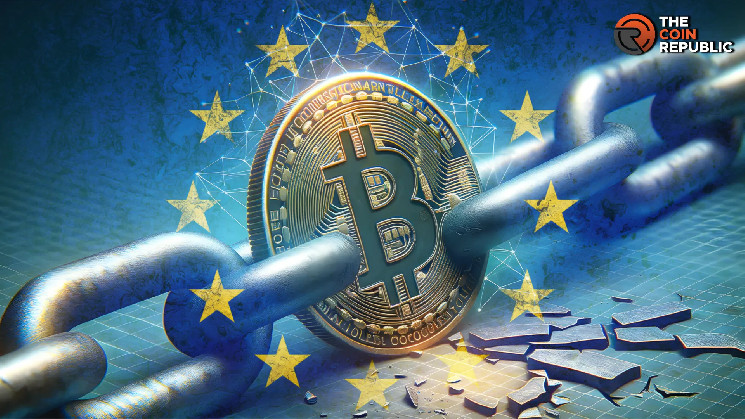Lawmakers of the European Union (EU) have taken significant measures to strengthen their efforts towards combating violations of sanctions
On Tuesday, the Members of the European Parliament (MEPs) voted to introduce strict new laws aimed at reducing violations related to travel bans, arms embargoes, sectoral restrictions, and asset freezes.
The Focus of New Rules
The focus of the new rules is on crypto-assets and wallets, and the legislation sets out clear definitions for violations such as failing to freeze funds, not respecting travel bans or arms embargoes, transferring funds to persons subject to sanctions, or doing business with state-owned entities of countries under sanction.
However, enforcement of these sanctions remains the duty of individual member states, leading to inconsistencies in the definitions and penalties implemented across different jurisdictions.
Furthermore, the directive expands the range of punitive actions to include deliberate infringements and cases of negligent trading in arms or dual-use items. The EU can enforce sanctions by freezing assets, including cryptocurrency, imposing travel bans arms embargoes, and restricting business sectors. While these sanctions are set at the EU level, how strictly they are enforced varies among member states based on their definitions of violations and the corresponding penalties.
Why The EU Wants to Apply Laws On Cryptos
The new legislation establishes consistent definitions for violations, which include failing to freeze funds, disregarding travel bans or arms embargoes, transferring funds to individuals subject to sanctions, or engaging in business with state-owned entities of countries under sanction. Providing financial or legal advice in violation of sanctions will also become a punishable offense.
The law also defines the circumvention of sanctions and makes it a punishable offense. Examples of circumvention include concealing or transferring funds that should be frozen, concealing the true ownership of property, and failing to report necessary information. The law specifies that providing humanitarian assistance or supporting basic human needs should not be considered a violation of sanctions.
The directive ensures that punishment for violating or circumventing sanctions is a deterrent by making them criminal offenses that carry prison sentences of up to five years in all member states.
In instances where companies violate or circumvent sanctions, judges must be able to impose dissuasive fines. However, member states can choose whether a judge can impose a maximum penalty based on the worldwide annual turnover of the company, or based on absolute maximum amounts.
The current varying penalties can result in forum shopping, which is the practice of seeking out member states with the weakest enforcement. The new law would provide judges with a wide range of options for punishing violators. Additionally, the trade in arms or dual-use items would be criminalized in cases of serious negligence, in addition to intentional violations.
Summary
New rules have been voted upon to establish clear definitions for crypto-related offenses. These can include transferring funds to sanctioned persons, failing to freeze funds, and doing business with state-owned entities of sanctioned countries. The new law aims to eliminate forum shopping practices and provide judges with a wide range of options to punish violators.
Disclaimer
The views and opinions stated by the author or any people named in this article are for informational purposes only. They do not establish financial, investment, or other advice. Investing in or trading in stocks, cryptos, or other related indexes comes with a risk of financial loss.

With a background in journalism, Ritika Sharma has worked with many reputed media firms focusing on general news such as politics and crime. She joined The Coin Republic as a reporter for crypto, and found a great passion for cryptocurrency, Web3, NFTs and other digital assets. She spends a lot of time researching and delving deeper into these concepts around the clock, and is a strong advocate for women in STEM.
 thecoinrepublic.com
thecoinrepublic.com
